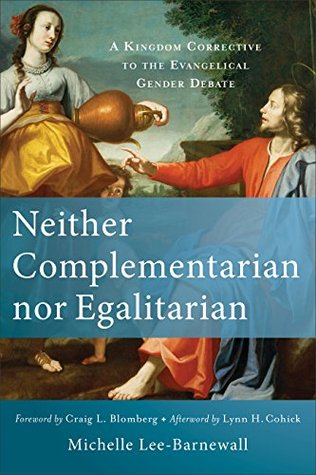More on this book
Kindle Notes & Highlights
Read between
February 9 - February 22, 2019
Rather than upholding the traditional model of the husband as ruler over the wife, Paul instead presents the kingdom model of the husband as head of the wife in the same manner that Christ is the self-sacrificing head of the church. In this way marriage demonstrates the relationship of Christ and the church in which the two are bound together deeply as a result of Christ’s love.
Clarke notes that Paul’s body metaphor has both mutuality and hierarchy. All parts are necessary, leading to mutual dependence, while at the same time there is a hierarchy in the ordering of the parts (1 Cor. 12:27–31).11 Both notions are likewise present in the household.12 Thus he asserts, “There is a danger that unity or mutuality be confused with or interpreted as equality.”13 Bengt Holmberg points out that in regard to the leaders of a church and the congregation, there can be a relationship of “mutual, but not symmetric, dependence on each other.”14
In another example, Clarke suggests some parts of Paul’s ministry might be better understood as “non-hierarchical” rather than “egalitarian.” Major examples would be Paul’s use of “brother” language, which would not have been understood as egalitarian in Paul’s Greco-Roman context but rather would convey “mutual dependence, support and love” with the possibility of status differences among brothers (e.g., the inheritance rights of the firstborn).
Likewise Paul’s use of syn- language, such as in his references to fellow workers, or syndouloi (e.g., Rom. 16:3, 9, 21), reflects “common fellowship, shared circumstances, or shared goals.”18 Thus “‘co-worker’ does not necessarily imply equality but rather co-operation, that is, helping in a task where there is unity of purpose, rather than an equal worker with God.”19
In regard to leadership, servanthood does not simply qualify leadership but transforms it.25
But the New Testament ethic also transcends rights. Paul affirms their importance, but states that what matters more is one’s willingness not to act on one’s right if it will lead to a greater good. When Paul calls people to give up rights for the sake of others and the furtherance of the gospel, he exhorts them to place their trust in God, the one who ultimately justifies and rewards. In some cases, to see rights as foremost can actually harm another person and hinder the gospel (e.g., 1 Cor. 8:1–13; 9:1–23).
progress of the gospel takes precedence over Paul’s personal rights (1 Cor. 9). Church leaders are not to grasp for power but are to be the first to set the example of sacrifice and suffering, to give up the rights of their position for the sake of the whole. The
We can reframe the debate by asking additional questions such as “How could male leadership lead to unity and oneness?” and “How could equality promote sacrificial living on behalf of others?”
What “authority,” “leadership,” “equality,” and “rights” have in common is that they often highlight the individual over the community and God himself. What their reversals share is the potential to guide us to a greater acknowledgment of God’s sovereignty and a recognition of God’s ways in which the willing sacrifice for the other through the denial of self-interest results in unity and love.
Ancient believers were well aware of the stock expression that connected the concept of endurance with the pain endured in childbirth, making endurance a feminine virtue.


